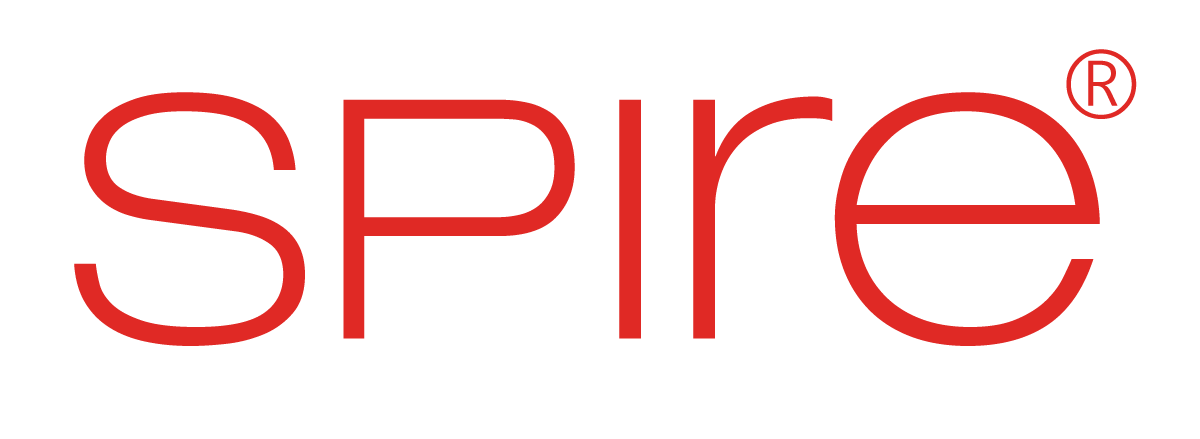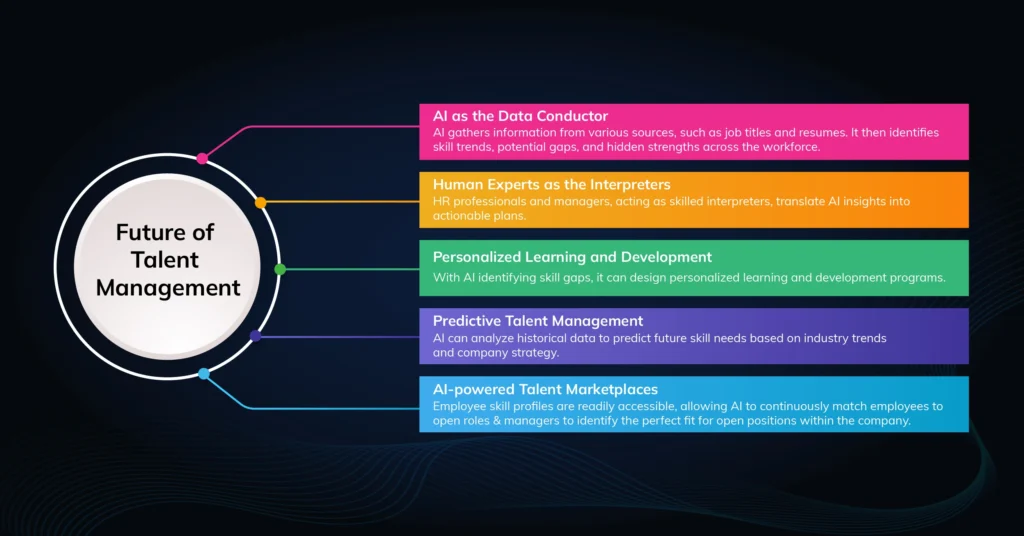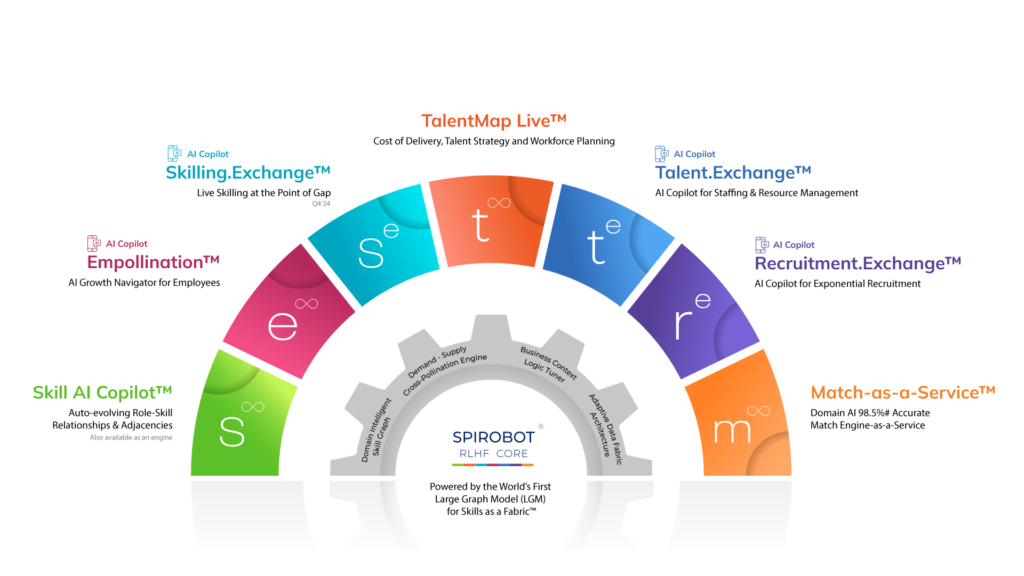In today’s fiercely competitive business environment, organizations are constantly striving to optimize their operations and improve their bottom line. One area that is ripe for transformation is talent management, and the integration of artificial intelligence (AI) is the key to unlocking significant improvements. By utilizing AI-generated skill profiles, companies can bolster their talent management strategies, leading to a higher return on investment (ROI).
This blog will delve into the benefits of AI-generated skill profiles, particularly those offered by platforms like Spire.AI, and how they can revolutionize talent management, instilling confidence in the positive impact on your ROI.
The Power of AI in Talent Management
Artificial intelligence (AI) is transforming various aspects of business, and talent management is no exception. AI algorithms can analyze vast amounts of data, uncovering hidden patterns and insights that would be impossible to glean manually. AI can create comprehensive profiles that clearly depict an individual’s strengths, weaknesses, and potential when applied to employee skill sets.
Unlocking the Benefits of AI-Generated Skill Profiles
Companies that leverage AI-generated skill profiles gain a significant advantage in managing their talent effectively. Here’s how:
Enhanced Performance Management
Knowing your employees’ strengths allows for targeted performance reviews. By understanding their skill gaps, you can offer personalized development plans and training opportunities, leading to a more engaged and productive workforce.
Benefits of AI-Generated Skill Profiles
– Enhanced Performance Management
– Strategic Workforce Planning
– Effective Internal Mobility
– Data-Driven Decision Making
Strategic Workforce Planning
AI can analyze department skill profiles to identify potential skill shortages or redundancies. This allows for proactive workforce planning, ensuring you have the right talent mix for future needs.
Effective Internal Mobility
AI can identify employees with transferable skills who might be a good fit for open positions within the company. This fosters career progression, improves employee morale, and reduces reliance on external hiring.
Data-Driven Decision Making
AI removes the subjectivity from talent management decisions. Skills are objectively assessed and visualized, leading to data-driven recruitment, training, and promotion choices.
The ROI Impact of AI-Generated Skill Profiles
– Reduced Costs
– Increased Productivity
– Improved Retention
– Enhanced Innovation
The ROI Impact of AI-Generated Skill Profiles
The benefits of AI-generated skill profiles translate directly into a higher return on investment (ROI) for organizations. Consider the following:
Reduced Costs
AI automates tedious tasks like skill identification and gap analysis, freeing up HR teams for strategic initiatives. Additionally, improved talent acquisition and internal mobility reduce reliance on expensive external recruitment agencies.
Increased Productivity
A skilled workforce is a productive workforce. By investing in employee development based on identified skill gaps, organizations see a significant increase in employee efficiency and output.
Improved Retention
Employees who feel valued for their skills and have opportunities to develop are more likely to stay with the company. This reduces costly employee turnover and ensures continuity of knowledge and expertise.
Enhanced Innovation
AI can identify hidden skills and potential within your workforce, fostering innovation by connecting people with complementary skills for cross-functional projects.
How Spire.AI Helps With Automated AI-Generation of Skill Profiles
Spire.AI leverages AI to build skill profiles for more than 83% of the employee base with minimal inputs like job titles. Here’s how the process works:
- Data Aggregation: Spire.AI collects data from diverse sources, including internal databases. This comprehensive data collection ensures that all relevant skills and experiences are captured.
- Data Processing: The AI algorithms process the aggregated data, identifying patterns, extracting critical skills, and mapping these skills to specific job roles. The system also updates the skill profiles in real time, reflecting any changes or new information.
- Profile Generation: Spire.AI generates detailed employee skill profiles based on the processed data. These profiles include skills, proficiency levels, and relevant experiences, providing a holistic view of each employee’s capabilities.
- Insights and Analytics: The platform also offers insights and analytics, enabling HR professionals to understand skill gaps, identify high-potential employees, and make data-driven decisions regarding talent management.
Benefits of AI-Generated Skill Profiles
Benefits of AI-Generated Skill Profiles
Improved Employee Development and Retention
Optimized Talent Deployment
Enhanced Workforce Planning
Reduced Bias in Talent Management
Improved Employee Development and Retention
AI-generated skill profiles are invaluable for employee development and retention. By understanding the skills and competencies of their workforce, organizations can create targeted training and development programs that address specific skill gaps. This personalized approach to employee development enhances individual performance and contributes to overall organizational growth.
Furthermore, AI-generated skill profiles can identify high-potential employees suitable for leadership roles or critical projects. Organizations can improve employee engagement and retention by recognizing and nurturing these individuals, reducing turnover rates and associated costs.
Optimized Talent Deployment
Another critical benefit of AI-generated skill profiles is the ability to optimize talent deployment. With a comprehensive understanding of the skills available within the organization, HR professionals can allocate resources more effectively, ensuring that the right people are assigned to suitable projects. This leads to increased productivity, better project outcomes, and a higher ROI.
Enhanced Workforce Planning
AI-generated skill profiles also play a crucial role in workforce planning. Organizations can proactively address potential skill shortages and plan for future workforce requirements by analyzing skill trends and forecasting future skill needs. This forward-thinking approach to talent management ensures that the organization remains agile and prepared for challenges.
Reduced Bias in Talent Management
Unconscious biases often influence traditional talent management processes, leading to unfair and reactive hiring and promotion decisions. AI-generated skill profiles, on the other hand, rely on objective data and algorithms, minimizing the impact of biases. This promotes a more inclusive and diverse workforce, which has been shown to drive innovation and improve business performance.
Beyond the Basics: Considerations for Successful Implementation
While the benefits are compelling, successfully implementing AI-generated skill profiles requires careful consideration. Here are some key points:
- Data Quality: The accuracy of AI’s insights directly depends on the data quality it analyzes. Ensure your HR information systems are up-to-date and accurate.
- Transparency and Communication: Employees may have concerns about AI involvement in their skill assessment. Be transparent about the process and how the information is used.
- Human-in-the-Loop Approach: AI should be seen as a tool to empower HR professionals, not replace them. Utilize AI for data processing and analysis but rely on human expertise for interpretation and decision-making. Spire.AI also provides an additional layer of validation by employees and managers to ensure the profiles are accurate and project only the correct information.
The Future of Talent Management is AI-Driven
The future of talent management is not simply AI-driven; it’s a harmonious collaboration between human expertise and machine intelligence. While AI excels at data analysis and pattern recognition, human intuition, creativity, and emotional intelligence remain irreplaceable. Here’s a glimpse into this future Human and AI collaboration:
AI as the Data Conductor: AI gathers information from various sources, such as resumes, performance reviews, project documents, and internal communication platforms. By analyzing this data, AI identifies skill trends, potential gaps, and hidden strengths across the workforce.
Human Experts as the Interpreters: HR professionals and managers, acting as skilled interpreters, translate AI insights into actionable plans. They understand the nuances of roles, company culture, and individual employee potential.
Personalized Learning and Development: With AI identifying skill gaps, humans design personalized learning and development programs. This could involve targeted online courses, mentorship opportunities, or participation in cross-functional projects. AI then tracks progress and recommends further training, ensuring a continuous learning loop.
Predictive Talent Management: AI can analyze historical data to predict future skill needs based on industry trends and company strategy. This allows for proactive talent management. HR can plan to upskill existing employees, identify those with transferable skills suitable for upcoming roles, or strategically recruit new talent to fill anticipated skill gaps.
AI-powered Talent Marketplaces: Imagine a future where a sophisticated AI-powered marketplace facilitates internal talent mobility. Employee skill profiles are readily accessible, allowing managers to identify the perfect fit for open positions within the company. This reduces reliance on external recruitment and fosters a culture of career growth and development.
Conclusion
In conclusion, AI-generated skill profiles represent a game-changing innovation in talent management. Platforms like Spire.AI offer a sophisticated solution that aggregates and interprets unstructured data to create detailed employee skill profiles. By leveraging these profiles, organizations can enhance their hiring processes, improve employee development and retention, optimize talent deployment, and plan more effectively for the future.
The benefits of AI-generated skill profiles extend beyond operational improvements, leading to a higher return on investment and a more competitive edge in the marketplace.
The benefits of AI-generated skill profiles extend beyond operational improvements, leading to a higher return on investment and a more competitive edge in the marketplace. As organizations navigate the complexities of the modern business environment, embracing AI-driven talent management solutions will be vital to unlocking their full potential and achieving long-term success.







